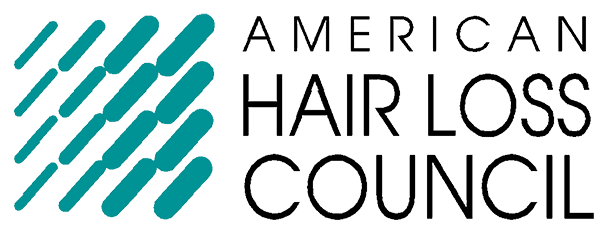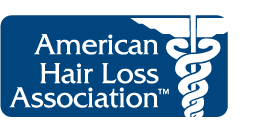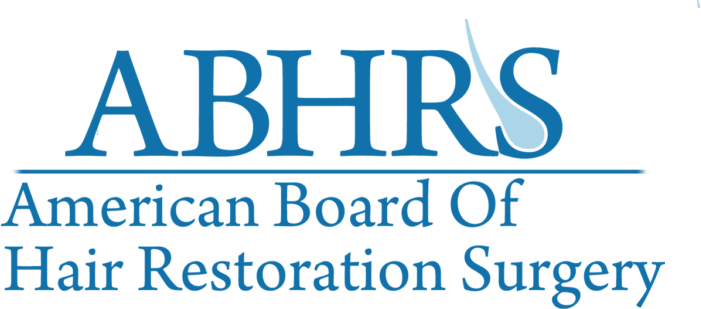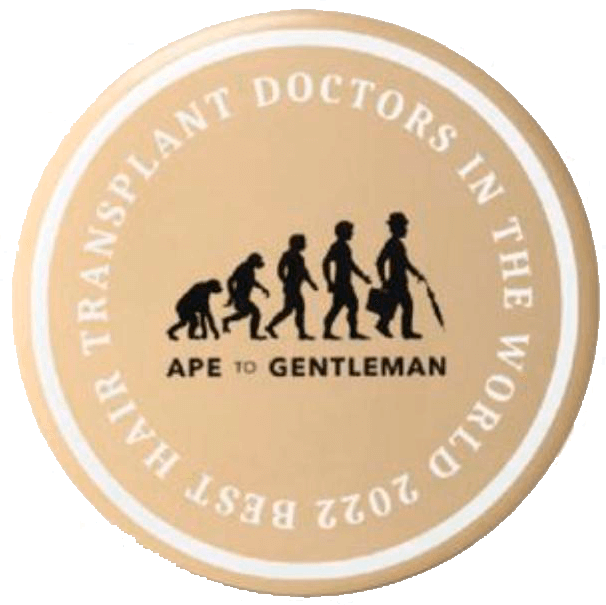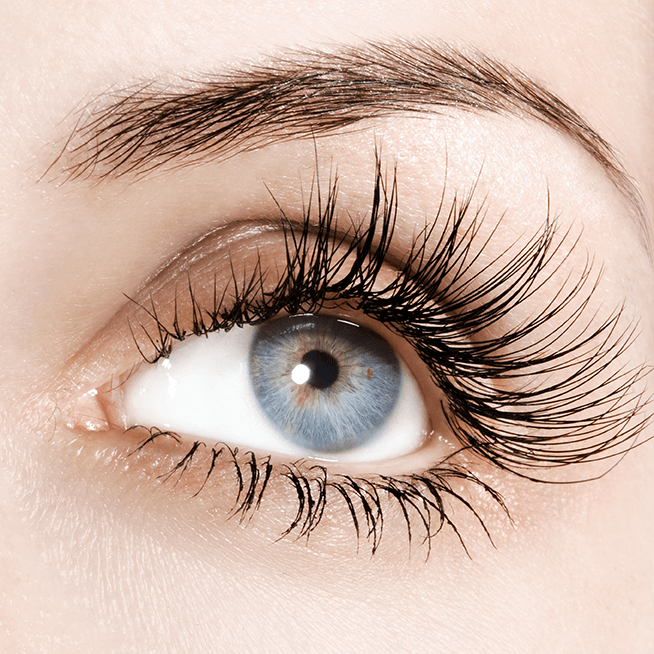PCOS Hair Loss & How to Treat It
by Dr Alan J Bauman MD ABHRS
What is PCOS?
Polycystic Ovarian Syndrome (PCOS) also called Polycystic Ovarian Disease (PCOD)
Polycystic Ovarian Syndrome or PCOS is a group of symptoms that include cysts on the ovaries, abnormal periods, excess body hair including facial hair (hirsutism), scalp hair loss, acne, weight gain, and difficulty getting pregnant. Symptoms of hyperandrogenism are those signs related to the effects of androgens (aka male hormones) in the body. Over the long term, women can develop diabetes and heart disease. The cause of PCOS is unknown but the condition is related to genetics, hormones (high androgens or high androgen sensitivity/insulin resistance), and inflammation. PCOS is the most common hormone abnormality in women of childbearing age, affecting up to 10% of all women in that category. [webMD]
PCOS is an endocrine hormone imbalance that interferes with normal ovulation, but not all PCOS patients have the same symptoms. Some women may have one, two, or many symptoms related to PCOS. Some women will struggle with weight loss and be overweight or obese, but others will not. The same is true for PCOS and hair loss. Therefore, the diagnosis of PCOS can be challenging and is not always straightforward.
In this PCOS Hair Loss article you will find information on:
- PCOS Diagnosis & Testing
- Actor Keke Palmer Reveals PCOS Diagnosis
- PCOS Hair Loss & Scalp Health
- PCOS Hair Loss Evaluations
- Role of Androgens & Anti-androgens In PCOS Hair Loss
- Hair Growth Treatments & Tracking
Do I Have PCOS..? Diagnosis & Testing
Often, a collection of tests and observations like ultrasounds and lab work are required, as well as the exclusion of other abnormalities and a high degree of clinical suspicion. Typically, PCOS patients must have clinical or biochemical signs of hyperandrogenism, in addition to either abnormal menstrual cycling or “polycystic” ovaries seen on ultrasound. Your physician should rule out other hormone conditions such as thyroid, prolactin, or adrenal abnormalities first.
PCOS treatments may include dietary modifications, increased exercise, weight loss, medications like hormones, anti-androgens, anti-diabetic drugs, lipid medications, as well as infertility treatments. Many reproductive endocrinologists treat PCOS infertility but fail to address cosmetic issues like scalp health, hair loss, and thinning hair, leaving patients to find a Hair Restoration Physician on their own to solve the hair loss and scalp health issues.
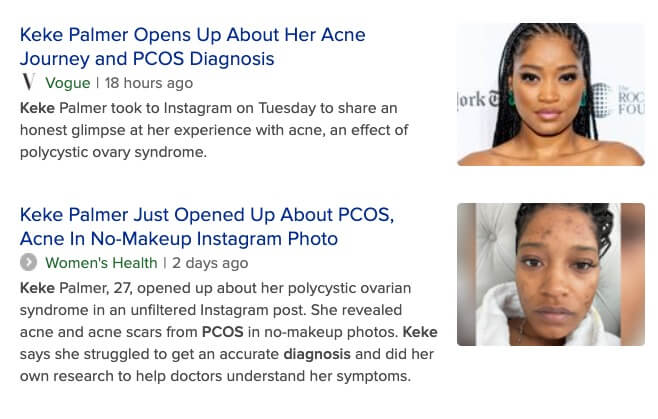
Actor Keke Palmer reveals acne scars from PCOS on Instagram and describes her struggle to get an accurate diagnosis.
PCOS and Hair Loss, Hair Thinning, Hair Breakage, and Scalp Health
Hair loss in any situation can be distressing, and PCOS is undoubtedly no different. PCOS commonly causes hair loss and hair thinning on the scalp and increased hair on other parts of the body. According to experts, androgens (hyperandrogenism) and “androgen sensitivity” play a role in many PCOS symptoms. PCOS hair loss can be associated with hair breakage, hair shedding, wide part-lines, decreased volume of hair, etc. Often, PCOS hair loss will appear as a diffuse thinning of hair and loss of density and coverage from the frontal to crown/vertex areas. In other cases, it may look like male pattern hair loss–i.e., a receding hairline and thinning temples. Scalp seborrhea as well as scalp inflammation or folliculitis may also be present.
PCOS Hair Loss Evaluation & Treatments
Medical treatment of PCOS can slow the hair loss progression, but it doesn’t always result in powerful hair regrowth. Many PCOS patients consult with hair loss expert Dr. Alan Bauman in-person or virtually to get advice on their PCOS hair loss and learn about what can be done to effectively diagnose, monitor, and treat their condition. Diagnostics may include scalp evaluation, hair growth measurements, lab tests, collaboration with an endocrinologist or ob-gyn. There is no ‘miracle cure’ for PCOS hair loss and it often requires a multimodal or multi-therapy approach. Dr. Bauman has noted that accurate evaluations including HairCheck measurements and HairCam microscopic analysis of the scalp are critical to benchmark and track the results of treatments and procedures before results are noticeable to the naked eye, so we can determine what treatments are working.
Role of Androgens in PCOS Hair Loss, Hair Thinning
In men, we know that androgens like dihydrotestosterone or DHT is the primary trigger for male pattern hereditary hair loss, causing follicles to miniaturize. In some post-menopausal women, androgens can also affect hair follicle function causing follicles to miniaturize and weaken, but the “pattern” looks more diffuse. In women who receive external testosterone replacement therapy, hair loss can become triggered or become worse. In these conditions, an anti-androgen therapy regimen including finasteride, dutasteride, saw palmetto, spironolactone and other therapies may be prescribed. Because hyperandrogenic or excess androgen symptoms are common in PCOS, as well as a degree of heightened sensitivity to androgen (increased androgen sensitivity), an anti-androgen regimen is often successful in PCOS hair loss.
Hair Growth Treatment Modalities and Monitoring/Tracking for PCOS Patients
Achieving good quality hair regrowth is possible, but not always straightforward or simple. Some treatments work better in some patients than others, and many PCOS patients require a combination of therapies to reach their desired results. All treatments prescribed including their risks and benefits should be discussed with your Hair Restoration Physician. Dr. Bauman has successfully recommended treatments such as topical medication like 82M Compounded Minoxidil or 82F Topical Finasteride+Minoxidil “Finoxidil,” medical-grade Laser Therapy devices like the TURBO LaserCap, oral finasteride (Fin.481), oral dutasteride, PRP+ECM Platelet Rich Plasma with Extracellular Matrix, PDOgro PDO Threads for Hair Regrowth, or even no-linear-scar minimally-invasive FUE hair transplantation in some cases. Additionally, nutritionals like Nutrafol, and BaumanMD DHT-control Hair Care products may also be of benefit, as well as Scalp Makeover diagnosis and evaluation for any scalp imbalance such as seborrhea or inflammation.
If you or someone you know has hair loss, hair thinning, baldness, or eyebrow / eyelash concerns, click to start either a long-distance virtual consultation OR an in-person, in-office consultation with Dr. Bauman. You can also Ask Dr. Bauman a Question or simply call Bauman Medical Group at +1-
*Each individual's treatment and/or results may vary




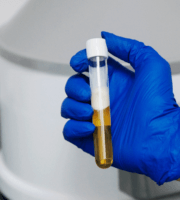 Not all PRP is created equal – a video by Dr. Bauman with Dave Asprey
Not all PRP is created equal – a video by Dr. Bauman with Dave Asprey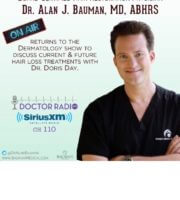 VIDEO: How To Medically Treat Hair Loss
VIDEO: How To Medically Treat Hair Loss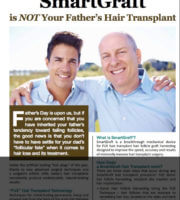 ARTICLE: SmartGraft is NOT your Father’s Hair Transplant
ARTICLE: SmartGraft is NOT your Father’s Hair Transplant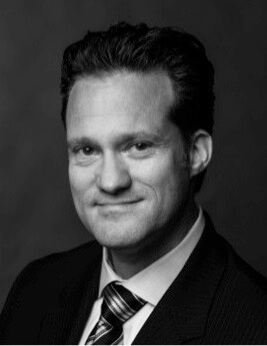 Dr. Alan J. Bauman, M.D.Hair Loss & Hair Transplant ExpertBoca Raton, FL
Dr. Alan J. Bauman, M.D.Hair Loss & Hair Transplant ExpertBoca Raton, FL